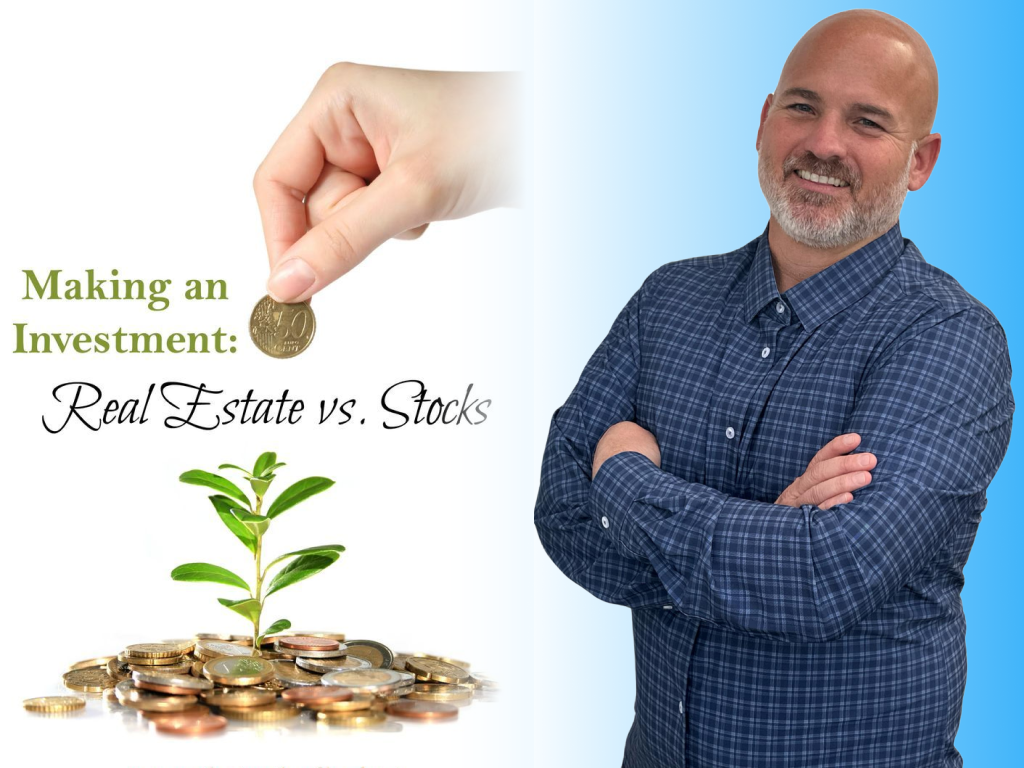Call Us: 904-501-8613

Real Estate vs. Stocks: Which Is the Better Investment?
When I first started comparing these two investment vehicles “Real Estate vs. Stocks”, I was struck by a statistic: over the long run, diversified portfolios that include both real estate and stocks have outperformed those focused on just one asset class! This post will break down the essentials so you can decide if real estate is a good investment or if stocks hold the upper hand.
Overview of Real Estate vs. Stocks
Investments come in many forms, but the classic debate always centers on property versus shares. Real estate involves tangible assets—homes, commercial buildings, and even REITs—while stocks represent ownership in companies with the potential for rapid gains and liquidity. Many investors even explore avenues like a roth ira to diversify their retirement savings. In this post, we’ll compare these two approaches to help you make an informed decision.
Returns: Real Estate vs. Stocks
When measuring returns, it’s crucial to understand the different mechanisms at play. Real estate investments often generate income through rental yields and property appreciation. Conversely, stocks offer returns through share price increases and dividends. In some years, the gains from a real estate stock might even outshine those from equities, but historically, the average market return has hovered around 10%. This leads to interesting debates about stocks vs real estate, especially when evaluating long-term wealth building.
Risks: Real Estate vs. Stocks
Real Estate Risks
Investing in property means you’re tied to location-specific factors. Property can be illiquid and is subject to market fluctuations, zoning laws, and maintenance issues. If a local downturn occurs, your asset value might drop, and it isn’t as simple as clicking “sell” online.
Stock Risks
Stocks, while liquid, come with their own set of risks. Market volatility can lead to rapid price swings, and economic or geopolitical events might cause sudden downturns. Even a diversified portfolio isn’t immune to systemic market shocks.
Pros and Cons of Real Estate Investing
Pros of Real Estate
Real estate offers the comfort of a tangible asset you can see and manage. There’s significant potential for leverage—using borrowed money to purchase property—and tax benefits like deductions for mortgage interest and depreciation. Rental income provides a steady cash flow and can act as a hedge against inflation.
Cons of Real Estate
On the downside, property investments require a larger upfront capital investment and ongoing maintenance. Selling a property is a lengthy process that involves transaction costs and regulatory hurdles. In short, while the returns can be rewarding, the effort and risks involved can be daunting.
Pros and Cons of Stock Investing
Pros of Stocks
Stocks offer unparalleled liquidity and ease of diversification. You can build a portfolio across various sectors with relatively little money. The convenience of modern brokerage platforms makes buying and selling shares a matter of minutes. Additionally, many investors take advantage of a real estate stock strategy within their diversified holdings to capture sector-specific gains.
Cons of Stocks
However, the stock market can be volatile. Short-term fluctuations and the psychological pressure of watching numbers change rapidly can lead to hasty decisions. Capital gains taxes and the temptation to trade too frequently may also erode your long-term gains.
Additional Considerations
What Is the 1% Rule in Real Estate?
The 1% rule is a quick guideline that suggests a rental property’s monthly rent should be at least 1% of its purchase price. For example, a $100,000 property should ideally rent for about $1,000 per month. This rule isn’t foolproof but provides a benchmark for assessing potential cash flow.
How Do REITs Compare to Stocks?
REITs, or real estate investment trusts, allow you to invest in real estate without the hassle of property management. They are traded on major exchanges, which means you get liquidity and diversification like you do with stocks. REITs have, in many cases, delivered impressive returns, adding another layer to the stocks vs real estate discussion.
What Has a Higher Return: Stocks or Real Estate?
Historical data shows that over long periods, real estate vs stock market returns have varied based on economic cycles and market conditions. While the stock market has provided robust returns averaging around 10% per year, some real estate investments—especially those utilizing leverage—can outperform in certain conditions. Ultimately, the answer depends on market timing, location, and personal management style.
In my view, whether you choose investing in real estate vs stocks boils down to your financial goals, risk tolerance, and personal preference. By carefully weighing the pros and cons, you can tailor your portfolio to harness the best of both worlds!




